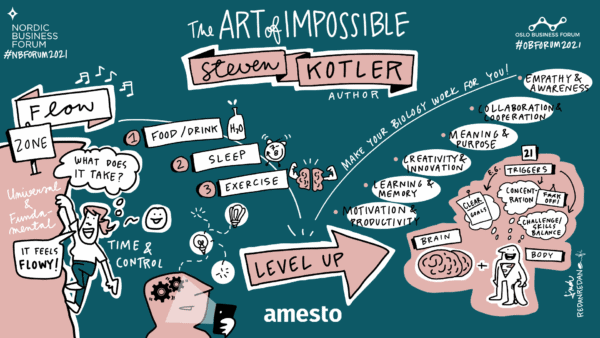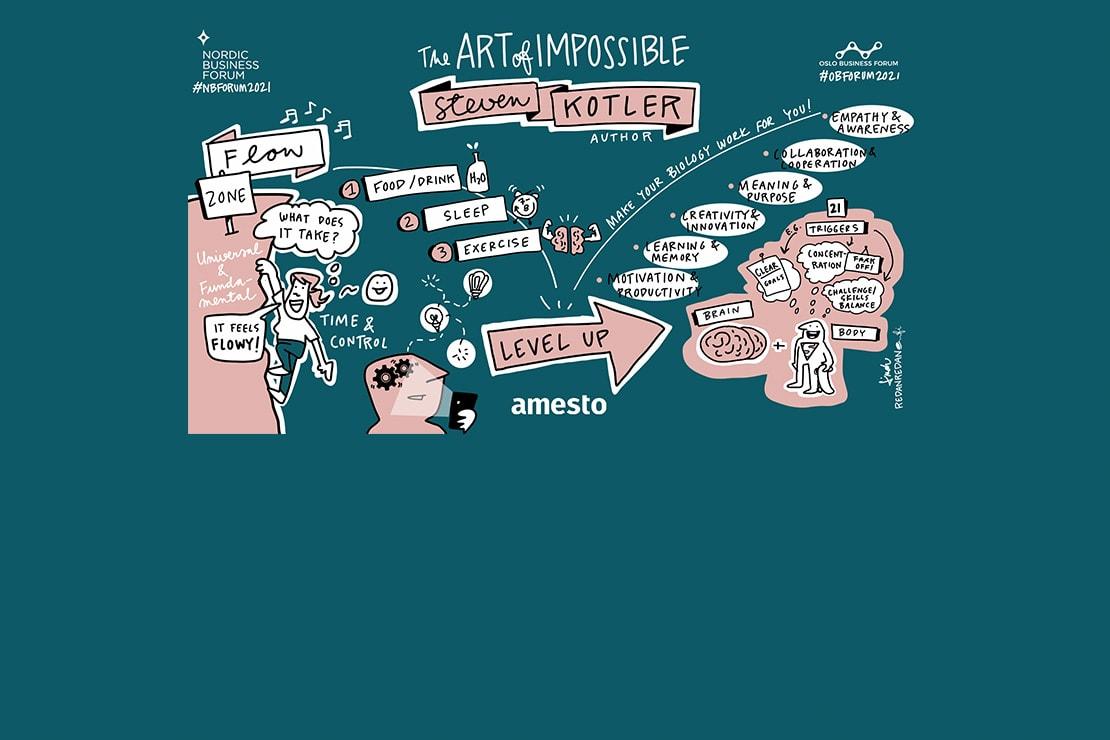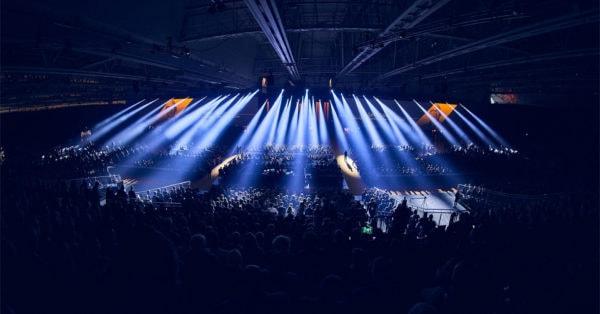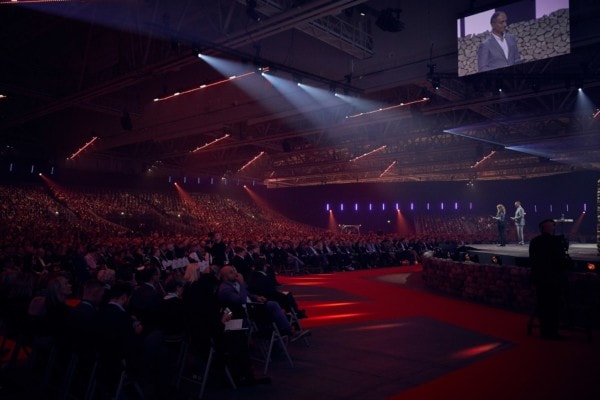21May2021
On 20 May, we had the pleasure to learn from Steven Kotler, a bestselling author and the Executive Director of the Flow Research Collective. Together with Oslo Business Forum and Amesto, we got together with Steven to discuss the art of human performance and how one can achieve the impossible.
Here, we summarize the key points of Steven’s research and ideas.
What Is Flow?
To kick things off, Steven explained that most of the times when someone achieves something that has been considered impossible, it appears that they have reached a state of consciousness known to researchers as flow. He highlighted that reaching the state of flow seems to be the key to peak performance regardless of the domain you look at.
But what is flow? “Technically flow is defined as optimal state of consciousness; when we feel our best and when we perform our best”, Steven simplified. Often we refer to it as “being in the zone” or “runner’s high”.
According to Steven, often people think that in flow we are optimally or extremely focused, but it’s not quite so. “In flow we are very focused but we are focused in a particular way. And we are so focused on the task at hand that everything else just starts to disappear.” If you’ve ever experienced a state of flow, you might have noticed that in those moments you don’t really have a sense of time or even sense of self but in return, you experience complete concentration and a sense of control.
What Is the Advantage of Flow?
The key advantage of flow is that you are able to reach peak performance. “Throughout the experience, all aspects of performance – both mental and physical – will go through the roof.”
Steven briefly talked about the history of flow research, which dates back to the 1870s. Mihaly Csikszentmihalyi, who is considered as the godfather of flow psychology described flow like this: “Being completely involved in an activity for its own stake. The ego falls away. Time flies. Every action, movement, and thought follows inevitably from the previous one like playing jazz. Your whole being is involved and you’re using your skills to the utmost.”
The advantages of flow are enormous. Steven listed the following based on different studies:
- Motivation and productivity increase by 500%
- Learning and memory go up by 240%
- Creativity and innovation get 400% higher
- Meaning and purpose increase by +100%
- Collaboration and cooperation go up
- Increased empathy/ecological awareness get higher
The list speaks for itself – the benefits are obvious.
How Can You Achieve Flow?
Through rigorous research, Steven and others have discovered how we as humans can actually reach the state of flow. They have found 22 flow triggers that can help take your performance to the next level. “If you are interested in flow and peak performance, these triggers are your toolkit.”
First, Steven presented the individual triggers that will drive individuals to a personal state of flow:
- Curiosity/Passion/purpose
- Autonomy
- Complete concentration
- Risk
- Novelty
- Complexity
- Unpredictability
- Deep embodiment
- Immediate Feedback
- Clear goals
- Challenge / skills ratio
- Creativity/pattern recognition
Then, he listed the group triggers that can help an entire team reach a state of flow together:
- Complete concentration
- Shared goals
- Shared risk
- Yes and…
- Close listening
- Autonomy/a sense of control
- Blending egos
- Familiarity
- Equal participation
- Open communication
“Flow follows focus. It only shows up when we’re in the right here and the right now. That’s what these triggers do: they drive our attention to the present moment.”
What Else You Can Do to Increase Your Performance?
“Flow is a very high-energy state, so you have to maintain energy.” Steven underlined that in order to drive peak performance and reach the state of flow, you need to get the basics right. Both physical and mental well-being is important in order to accomplish the impossible.
From the physical side, he highlighted three peak performance basics:
- Hydration/nutrition. According to Steven, there are no specific rules for hydration and nutrition as it varies between individuals. Different types of nutrition work for different people, so you need to figure out what works for you.
- 7-8 hours of sleep. This seems to be universal: we all need 7-8 hours of sleep in order to get into flow. “If you want way more flow in your life, you need to get a good night’s sleep.”
- Robust social support. “This is foundational for well-being and for mental health.“ It’s also important in order to maintain the high energy levels that we need in flow.
Steven then explained that there’s some fear involved in peak performance and anxiety is really bad for performance. “We need to fight against that anxiety on a daily basis.” Therefore, he also emphasized three peak performance basics from the mental side:
- Gratitude practice (5 mins).
- Meditation practice (11 mins).
- Exercise practice (20-40 mins).
These are daily exercises, and it depends a bit on your stress levels how much you personally need. “Under normal conditions, do one of these a day. If you’re stressed out, do two. If you’re super stressed out, do three.”
What Are the Most Important Triggers at Work?
To conclude, Steven underlined 3 flow triggers that he believes are the most important to explore at work.
- Clear goals. First get clear on your goals and then get clear on your actions. Steven always ends his workdays by listing his goals and actions for the next day.
- Complete concentration. “You cannot multitask.” In order to get into flow, we need 90-100 minutes to focus on what we’re doing. Steven always shuts down all distractions (emails, social media, etc.) when he wants to concentrate.
- Challenge/skills balance. “We pay most attention to the task at hand when the task slightly exceeds our skill set.” The key is that you feel a bit uncomfortable but not overwhelmed – you need to push your skills.
Finally, Steven acknowledged that peak performance is not just about flow. Flow is actually just one piece of a 4-part peak performance equation. “Peak performance is nothing more but getting our biology to work for us rather than against us.” According to Steven, there’s a suite of motivational tools, a suite of learning tools, a suite of creativity tools, and finally some flow tools. If you want to learn more, Steven’s new book the Art of Impossible discovers this equation. But, to get things started go practice getting into flow.
Here is also a visual summary of Steven’s idea by Linda Saukko-Rauta:


 by:
by: 
